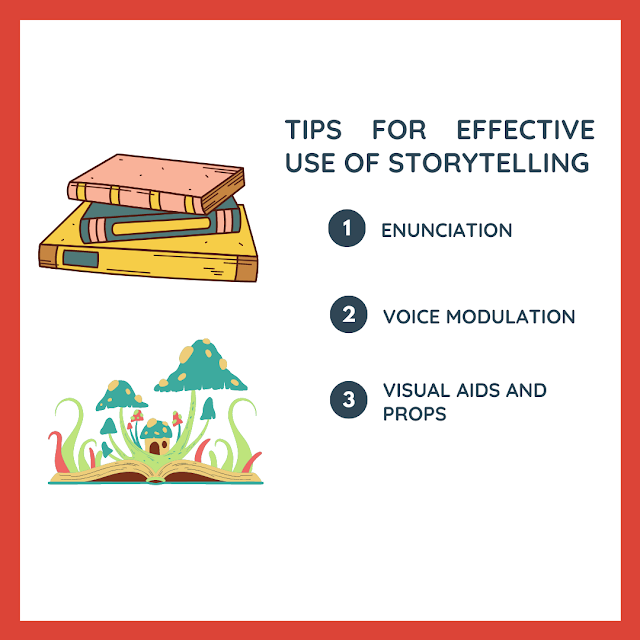A while back, we had done a post on Toddler Milestones and Language Development. In this post, we will more specifically examine the role which stories play at this crucial stage in a toddler's life.
Language development can broadly be divided into two parts.
Comprehension
Language development in children starts with understanding or comprehending what is being communicated, and this starts as early as the fetus stage of life. Children can listen to sounds before they are even born, and they learn to distinguish the different sounds around them in the first couple of months of their life. Over time, they begin to understand the exact message that is being communicated to them through the medium of speech in the language which is being used at home. Which is why children as young as 2 to 3 months and certainly around 6 to 7 months seem to understand what their parents or other caregivers around them are saying.
Speech
Speech is the next step involved in language development, and typically happens after the comprehension stage is complete. This means that children start forming words after they have learned to understand them. Which is why initially it may sound like gibberish till children are able to properly form words and then sentences.
Role of Storytelling and Story-building in Language Development
Which brings us to the main part of this post, and what we have learned in our almost 10 year experience at Morning Glorie's preschool and creche in South City 1, Gurgaon, through our interaction with the many children who have been in our care - how story telling can be used effectively to facilitate language development in toddlers.
Building a new world
Stories help little children transport into a world that is different from their own - a set of characters, locations and circumstances that seem familiar at times, yet completely different. This attracts them and helps them focus on message being communicated through the story. This facilitates the comprehension phase of language development.
Finding patterns in speech
Listening to new stories as well as repetition of stories narrated earlier help children find patterns in speech, which helps in building vocabulary and also aids in sentence formation as the children grow older. Toddlers try to replicate the sounds that they have heard earlier and managed to comprehend, which aids in the speech part of language development, for older kids, language development is enhanced as they not just replicate what they have heard, but also try to build their own stories. This can happen both orally, as well as through the written word.
Tips for Using Storytelling Effectively
For storytelling to be used as an effective tool in aiding language development in children, we are sharing a few tips. This is especially crucial in the early months, when language development has just started happening.
1. Enunciate - It is very common to use "baby language" when we are communicating with smaller children, we typically see it as a sign of affection. However, for proper language development to happen, it is important to enunciate and form the words properly.
2. Use voice modulation - the use of the right expression in your voice at the right time helps keep children engaged, which increases their focus and attention on the language that is being used.
3. Make use of visual aids and props - there are two benefits to doing this. One, children are more engaged when they is an aid that visually accompanies a story. Two, this facilitates vocabulary building as they are able to associate specific objects or characters with the sound that is coming out of your mouth.
At Morning Glorie's preschool and creche in South City 1, we have used storytelling extensively with our toddlers and have seen the positive results in language development for them. Of course, we must always remember that each child is different, and their own set of circumstances may lead to faster or slower language development as compared to other kids. We must always remember to not compare but understand where each child is at, and help them with positive encouragement.
Up Next - Homeschooling for Early Learning - the Way Ahead




This comment has been removed by the author.
ReplyDeleteThanks for sharing useful information for us.I really enjoyed reading your blog, you have lots of great content.Please visit here. Daycares in slidell Wonderfully written blog post with the benefits.
ReplyDeleteKidzVille Learning Center is a toddler montessori in surrey for children ages 20 months to 3 years old. We help and provide guidance to very young children who are working towards their eating, dressing and toileting practices in order to attain independence. For us each child is unique and we understand their individuality, hence we allow them to go on and grasp things at their own pace and according to their own interest.
ReplyDeleteToddler care is a place where a child is taken care of with engaging and interactive activities. A loving and caring environment with a safe and secure space for toddlers who are now ready to move around. KidzVille Learning Centre is a toddler montessori in surrey which not only takes care of your child while you are away working but also gives your toddler a chance to interact and play with many other children which is far better than getting involved in gadgets like mobile phones.
ReplyDeleteBritish School of Languages provides online english speaking course in india with highly experienced and professional teachers who are available from head to toe to deliver an accelerated learning experience to the students aspiring to ascertain the foundation of English speaking and excel in a productive manner.
ReplyDeleteHey Nice Blog!!! Thank you for sharing information. Wonderful blog & good post.Its really helpful for me, waiting for a more new post. Keep Blogging!!!
ReplyDeleteBest Play Group school in jankipuram | EuroKids
Day Boarding Near me